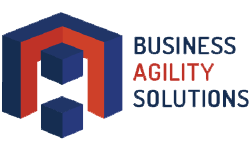PMI RISK MANAGEMENT PROFESSIONAL (PMI-RMP) PREPARATION COURSE (RMP-PMI-02)
Overview
OBJECTIVES Describe the PMI-RMP® certification exam List the domains and processes in Project Risk Management Define Project Risk Management List the critical success factors to apply risk management List the different types of risks Explain individual and overall project risk Describe responsibility for Project Risk Management Identify Project Risk Management processes Assess and evaluate characteristics of individually identified risk Performing Quantitative Risk Analysis provides a numerical estimate Define risk response strategies and contingency plan Tracking identified risks Monitoring the effectiveness of risk response plans Reviewing the effectiveness of risk management processes
Syllabus
Week 1
-
1. RISK STRATEGY AND PLANNING

Risk Strategy and Planning domain contains activities related to developing policies, processes, and Procedures, risk assessment, planning, and response. The tasks in this domain are the following:
Task 1: Develop risk assessment processes and tools
Task 2: Update risk policies and procedures
Task 3: Develop and recommend project risk strategy
Task 4: Produce risk management plan for the project
Task 5: Establish evaluation criteria for risk management processes
Week 2
-
2. STAKEHOLDER ENGAGEMENT

Stakeholder Engagement domain contains activities related to promoting the understanding of Project
Risk Management for stakeholders and project team members, assessing stakeholder risk tolerance, Prioritizing Project risk, and promoting risk ownership. The tasks in this domain are the following:
Task 1: Promote common understanding of value of risk management.
Task 2: Train, coach, and educate stakeholders in risk principles and processes.
Task 3: Coach project team members.
Task 4: Assess stakeholder’s risk tolerance.
Task 5: Identify stakeholder’s risk attitudes.
Task 6: Engage stakeholders based on risk prioritization.
Task 7: Provide risk-related recommendations to stakeholders.
Task 8: Promote risk ownership by proactive communication.
Task 9: Liaise with stakeholders of other projects.
Week 3
-
3. RISK PROCESS FACILITATION

Risk Process Facilitation domain contains activities related to facilitating risk identification, evaluation, prioritization, and response among project team members. The tasks in this domain are the following:
Task 1: Apply risk assessment processes and tools.
Task 2: Facilitate risk identification.
Task 3: Facilitate project team’s evaluation of the identified risks attributes.
Task 4: Facilitate development of an aligned risk response strategy and actions.
Task 5: Facilitate the formulation of project contingency reserve.
Task 6: Provide risk data to cost and schedule analysts.
Task 7: Validate potential risk responses, key dependencies, and requirements.
Week 4
-
4. RISK MONITORING AND REPORTING

Risk Monitoring and Reporting domain contains activities related to monitoring risk, evaluating risk response against established metrics, and communicating risk response performance to stakeholders and project team. The tasks in this domain are the following:
Task 1: Document and periodically update project risk information.
Task 2: Coordinate with project manager.
Task 3: Create periodic standard and custom reports.
Task 4: Monitor risk response metrics.
Task 5: Analyze risk process performance against metrics.
Task 6: Update Project Risk Management plan.
Task 7: Capture risk lessons learned.
Week 5
-
5. PERFORM SPECIALIZED RISK ANALYSES

Perform Specialized Risk Analyses domain contains activities related to the specialized qualitative and quantitative tools and techniques used by Project Risk Management professionals. The tasks in this domain are the following:.
.
Task 1: Evaluate the attributes of identified risks.
Task 2: Analyze risk data produced during the project.
Task 3: Perform specialized risk analysis.
Only logged in customers who have purchased this product may leave a review.








Reviews
There are no reviews yet.